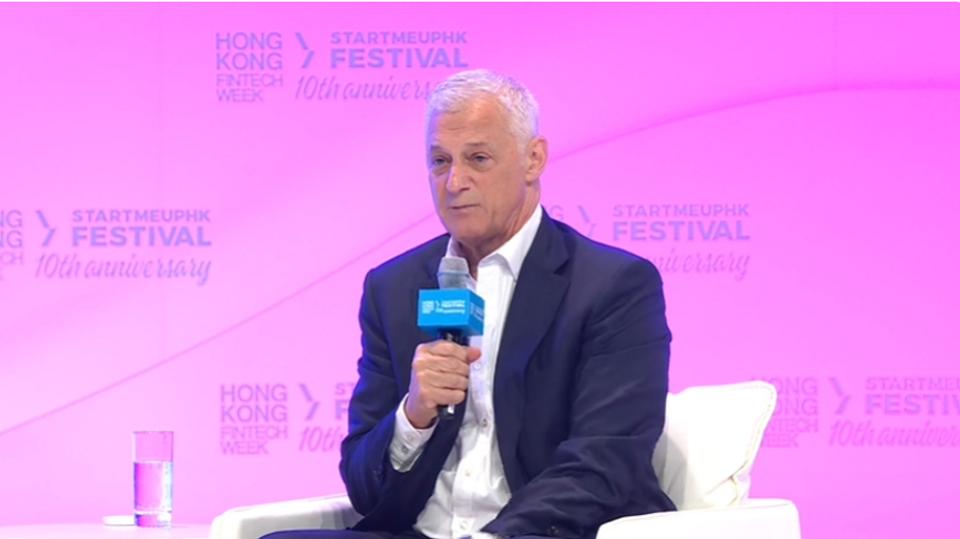
At FinTech Week, the Standard Chartered CEO said Hong Kong’s digital asset pilots, including HKD-backed stablecoins and tokenized deposits, could transform cross-border trade, as regulators unveiled new rules allowing shared order books for crypto exchanges.
Updated Nov 3, 2025, 11:59 a.m. Published Nov 3, 2025, 10:46 a.m.
Standard Chartered CEO Bill Winters said on Monday that Hong Kong’s push into tokenized money and stablecoins could lay the foundation for a new era of digital trade settlement.
Speaking at Hong Kong FinTech Week, Winters pointed to ongoing pilots in tokenized deposits and the creation of a Hong Kong-dollar-backed stablecoin as potential breakthroughs for cross-border commerce.
“I wouldn’t say that we’ve fully captured the digitized nature of those flows as yet, but we will,” Winters said. “Having innovations like the tokenization of deposits being led in Hong Kong, the establishment of Hong Kong dollar stable coins … becomes a really interesting currency of exchange, or medium of exchange for international trade.”
He added that Hong Kong’s “pilots in digital assets … as mechanisms for trade globally … will smooth the evolution into the new international trading order on wholly digital terms.”
His remarks come almost a year after Standard Chartered’s Hong Kong unit, Animoca Brands and HKT announced a joint venture to apply for a license from the Hong Kong Monetary Authority to issue an HKD-backed stablecoin under the city’s new regulatory regime. The trio is among the five entities participating in the HKMA’s stablecoin issuer sandbox launched last year.
Earlier today, during the Hong Kong Fintech Week, the Securities and Futures Commission (SFC), the city’s markets regulator, announced that it would allow locally-licensed exchanges to access global liquidity via shared order books.
The change, detailed in a new circular, allows Hong Kong platforms to integrate global liquidity pools under what the SFC refers to as its ASPIRe roadmap for digital assets.
By permitting “shared order books,” the SFC aims to narrow price spreads, enhance market efficiency, and improve price discovery, although it warned of higher operational and settlement risks.
Platforms must maintain pre-funding, delivery-versus-payment settlement, unified market surveillance across jurisdictions, and compensation reserves to protect client assets, the SFC said in its circular.
More For You
OwlTing: Stablecoin Infrastructure for the Future
Stablecoin payment volumes have grown to $19.4B year-to-date in 2025. OwlTing aims to capture this market by developing payment infrastructure that processes transactions in seconds for fractions of a cent.
More For You
IREN Soars 30% After Inking $9.7B AI Cloud Deal With MicroSoft
The deal is indicative of how miners’ once-volatile hardware fleets are increasingly viewed as strategic compute assets, bridging the gap between blockchain and AI.
What to know:
- Microsoft has signed a $9.7 billion agreement with IREN for AI cloud capacity, marking a significant move in the neocloud sector.
- IREN, transitioning from Bitcoin mining, will purchase $5.8 billion in GPUs from Dell and expects $1.9 billion in annual revenue.
- The deal highlights the strategic value of miners’ hardware for AI, as Microsoft addresses GPU shortages to meet Azure AI demand.





